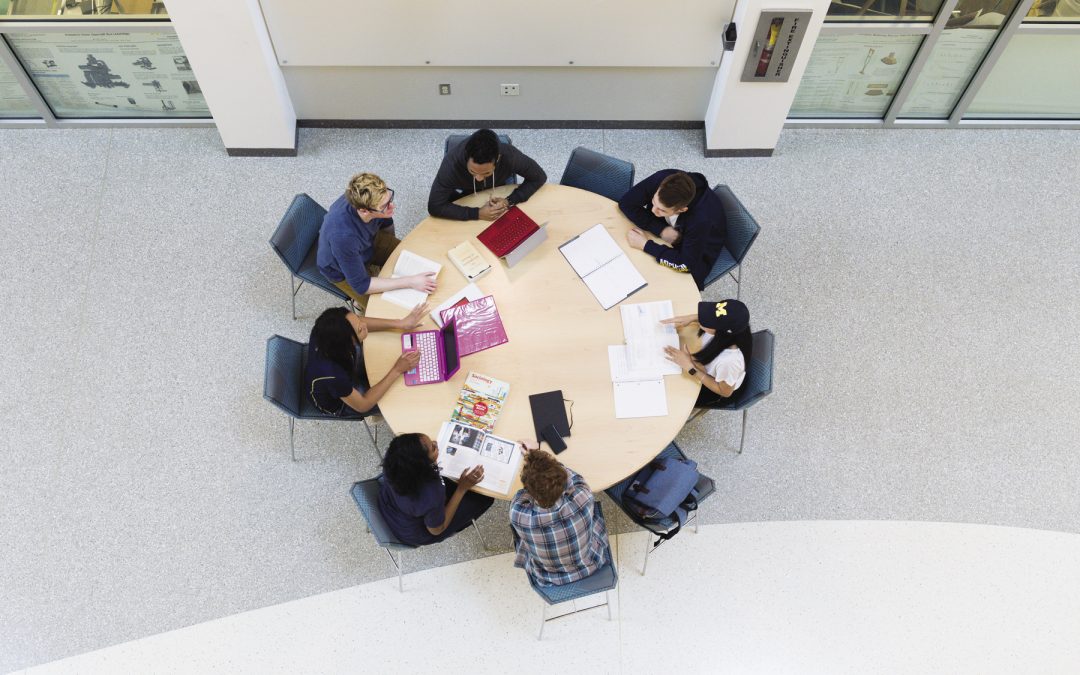In a new article from Inside Higher Ed, Rackham Program Manager for Public Scholarship Joseph Cialdella discusses the importance of knowing and articulating your approach to working with others, both in graduate school and in the job market:
“As collaboration continues to evolve as a way of operating for graduate programs and employers, you should think carefully about how you can work with others and consider the values around collaboration that you might bring to your career. Collaborative work takes on many different forms, depending on your field, organization and position. From brief transactional exchanges to deeply partnering with communities to advance shared interests and social change, the variety of ways we can choose to work with one another makes collaboration more than a skill or a competency—it’s a necessity.
“Your approach to collaboration can also be a distinct value you bring to an evolving job market. Previous posts for ‘Carpe Careers’ have illustrated how important it is to seek out opportunities to do collaborative work, especially in the humanities, as a way to broaden your career options. You should be able to discuss how you approach collaboration with your future employers and partners. It is also worth asking yourself, ‘What kind of collaboration am I interested in doing? And what is my approach to collaboration?’ Whether you have had positive, negative, or neutral experiences working with others in the past, thinking intentionally about collaboration during your time in graduate school and beyond can help you articulate how you will go about making contributions to projects that are larger than yourself.
“At the Rackham Graduate School, where I work, we briefly describe collaboration as the intentional process of working effectively with others toward shared objectives. Alongside this working definition, we are also fortunate to have a professional development program in public scholarship that, through experiential learning opportunities, helps graduate students think more intentionally and deeply about their collaborative practices as a part of their research and careers. From this work, several principles have emerged as useful framing for talking about collaboration as a part of a professional skill set.”
For the full story, please visit Inside Higher Ed.

